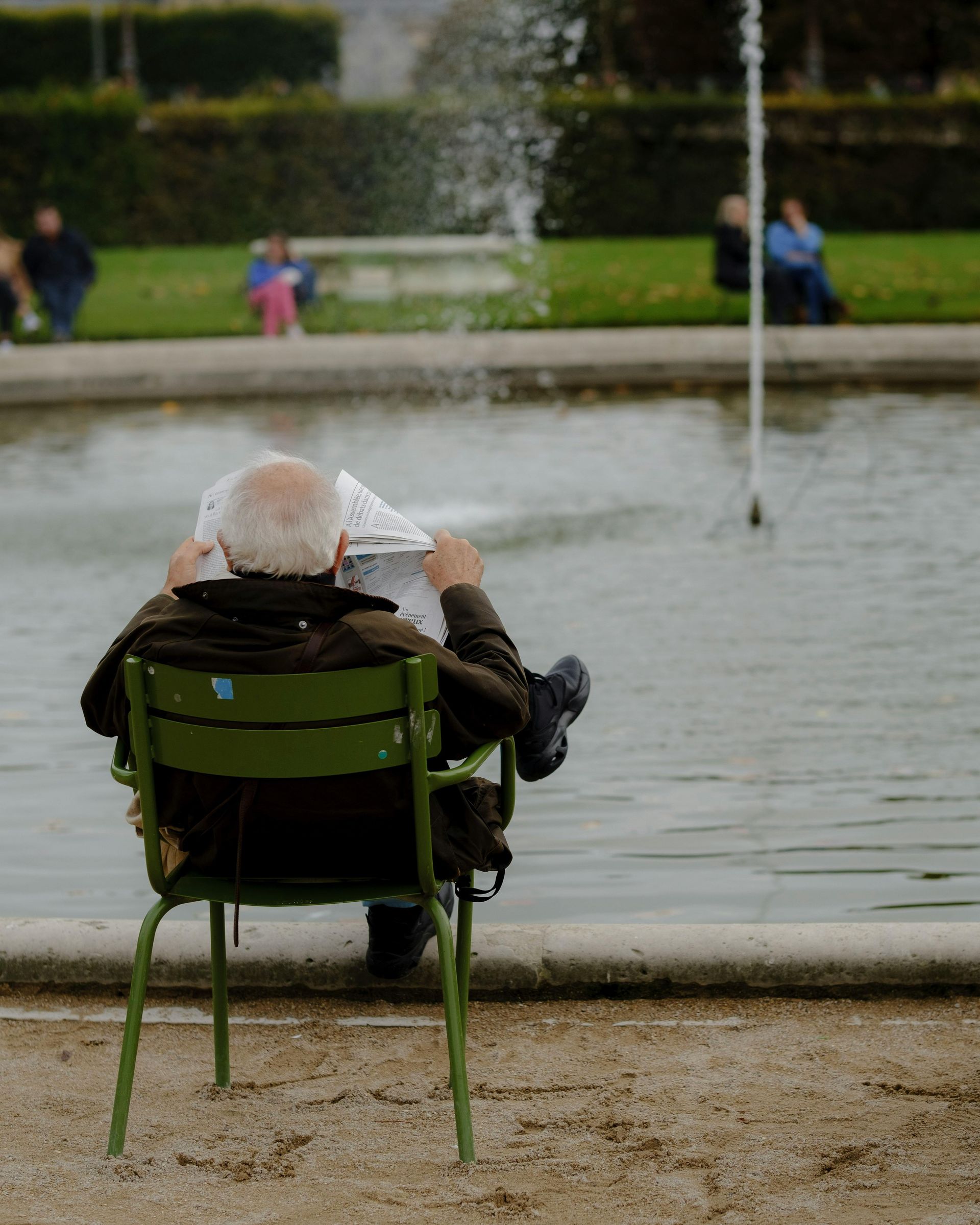Depression in Older Adults
Depression in Older Adults

Depression is a common but serious type of mood disorder. It can negatively affect the way you feel, act, and think. While depression is a common problem among older adults, it is not a normal part of aging. There are many types of depression, some more serious or lasting longer than others. Risk factors for depression in older adults include experiencing depression as a younger person, medical conditions like cancer, stroke or heart attack, stress, genes, social isolation, lack of physical activity and alcoholism or other addictions. Some medications or medical conditions can mimic symptoms of depression.
Symptoms of Depression in Older Adults
Depression can look different in people of differing ages and cultures. For many, the main symptom is sadness lasting two weeks or more. Often in older adults, the main symptom is lack of interest in activities.
The following is a list of the most common symptoms:
- Persistent sad, anxious, or "empty" mood, flat mood
- Feelings of hopelessness, guilt, shame, worthlessness, or helplessness
- Irritability, restlessness, or having trouble sitting still
- Loss of interest in once pleasurable activities, including sex
- Decreased energy
- Moving or talking more slowly
- Difficulty concentrating, remembering, or making decisions
- Difficulty sleeping, waking up too early in the morning, or oversleeping
- Eating more or less than usual, and/or unplanned weight gain or loss
- Thoughts of death or suicide, or suicide attempts
An individual with several of these signs and symptoms lasting for more than two weeks or more should report them to their doctor. These could be signs of depression or another health condition. Serious depression that is left untreated may lead to death by suicide. Primary care providers are recommended to screen patients for depression at their annual office visit with a questionnaire, but reporting symptoms shouldn’t wait.
Treatment for Depression
Treatment may be a single intervention or a combination of two or more therapies. Most insurance companies, including Medicare, will cover treatment for depression. It’s important to be patient when finding a therapy that works, as certain treatment interventions may work better for some than others.
- Psychotherapy, counseling, or “talk therapy” that can help a person identify and change troubling emotions, thoughts, and behavior. This is provided by a psychologist, psychiatrist, licensed clinical social worker (LCSW), or other licensed mental health care professional such as a psychiatric nurse practitioner, and can be done individually or in a group.
- Medications for depression that may balance chemicals that affect mood, such as serotonin. There are many different types of commonly used antidepressant medications. Selective serotonin reuptake inhibitors (SSRIs) are antidepressants commonly prescribed to older adults. A psychiatrist, mental health nurse practitioner, or primary care physician can prescribe and help monitor medications and potential side effects.
- Electroconvulsive Therapy (ECT), during which electrodes are placed on a person’s head to enable a safe, mild electric current to pass through the brain. This type of therapy is usually considered only if a person’s illness has not improved with other treatments.
- Repetitive transcranial magnetic stimulation (rTMS), which uses magnets to activate the brain. rTMS does not require anesthesia and targets only specific regions of the brain to help reduce side effects such as fatigue, nausea, or memory loss that could happen with ECT.
Combining treatments, particularly psychotherapy and medications, has been shown to be effective for older adults. However, not all medications or therapies will be right for everyone. Treatment choices and results differ for each person, and sometimes multiple treatments must be tried in order to find one that works. It is important to be patient while trying these therapies, and to keep trying until the right therapy and/or combination of therapies works. Most insurance companies, including Medicare, will cover these therapies.
Complementary health approaches, like yoga, that improve well-being can be helpful. However, these approaches, on their own, can’t successfully treat depression. While they can be used in combination with other prescribed therapies, they should not replace medical treatment.
Preventing Depression
Although most cases of depression cannot be prevented, a healthy lifestyle can have long-term benefits for mental health.
The following is a list of things that can improve mental health:
- Being physically active and eating a healthy, balanced diet.
- Getting 7-9 hours of sleep each night.
- Staying connected with friends and family.
- Participating in enjoyable activities
- Letting friends, family, and your physician know when you’re experiencing symptoms of depression.
Supporting Someone with Depression
Depression is a serious medical condition that requires treatment from a doctor or other mental health provider. While family and friends can help by offering support in finding treatment, they cannot treat a person’s depression.
A friend or family member of a person with depression might be supportive by:
- Encouraging the person to seek medical treatment and stick with the prescribed treatment plan
- Helping set up medical appointments or accompanying the person to the office or a support group.
- Participating in activities the person likes to do.
- Inviting the person to go for a walk or a bike ride. Physical activity can be great for boosting mood.
- Not being afraid to ask if the person is depressed or thinking about suicide. The conversation may help them to consider getting treatment.
Resources for Individuals and Families
American Psychological Association
800-374-2721
202-336-6123 (TDD/TTY)
www.apa.org
National Institute for Mental Health Resource Center Phone:
1-866-615-6464
Live Online Chat:
Talk to a representative
Email:
nimhinfo@nih.gov
Hours: 8:30 a.m. – 5 p.m. ET, M-F
988 Suicide & Crisis Lifeline
988 or 800-273-8255 (24 hours a day)
711 then 988 or 800-799-4889 (TTY)
https://988lifeline.org
National Coalition on Mental Health and Aging (NCMHA)
309-531-2816
admin@ncmha.org
www.ncmha.org/
References:
National Institute on Mental Health
National Institute on Aging
U.S. Centers for Disease Control (CDC)
https://www.cdc.gov/tobacco/campaign/tips/diseases/depression-anxiety.html
American Psychological Association
John’s Hopkins Medicine








